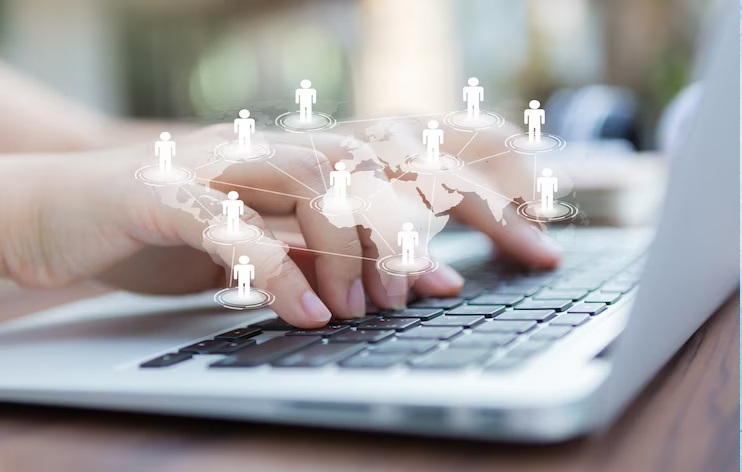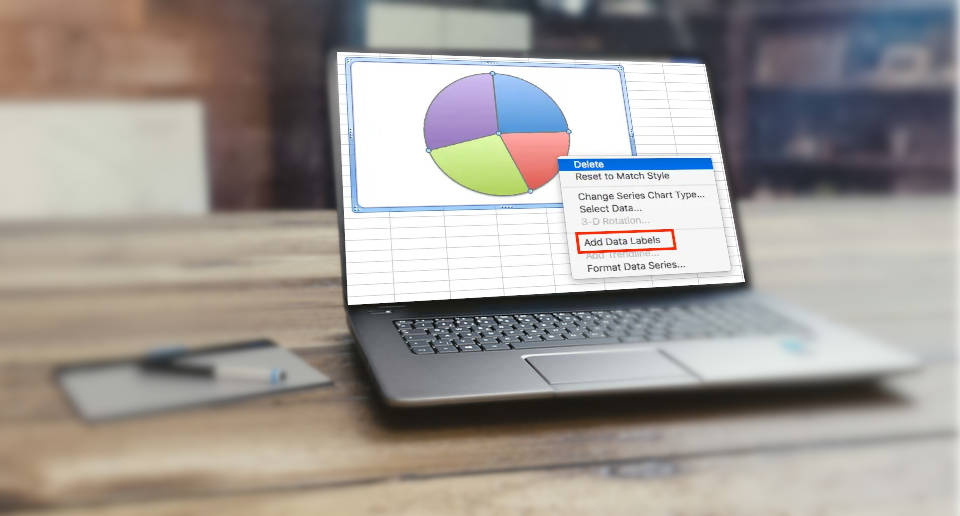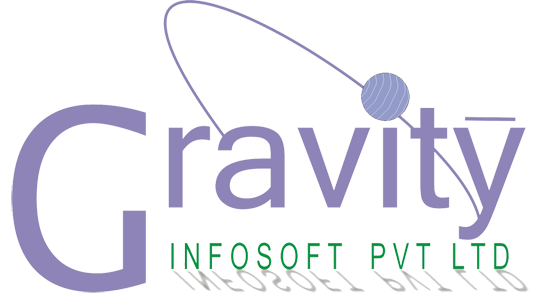Hotel Management Software development
In today’s fast-paced and competitive hospitality industry, hotel management software has become indispensable for hoteliers striving to enhance guest experience, streamline operations, and maximize revenue. This comprehensive guide delves into the development of hotel management software, exploring its key features, benefits, challenges, and future trends.
Hotel management software (HMS) refers to a suite of digital tools designed to automate and manage various operations within a hotel or hospitality establishment. These systems encompass a wide range of functionalities, including reservation management, front desk operations, housekeeping, billing, and guest communication. By integrating these functions into a cohesive platform, HMS aims to improve operational efficiency, enhance guest satisfaction, and boost profitability.

Key Features of Hotel Management Software
Reservation Management
Online Booking Engine: An integrated online booking engine allows guests to make reservations directly through the hotel’s website, reducing reliance on third-party booking platforms.
Channel Management: Synchronizes room availability and rates across multiple online travel agencies (OTAs) and global distribution systems (GDS), minimizing overbooking and maximizing revenue.
Central Reservation System (CRS): Centralizes reservation data, making it accessible across different properties within a hotel chain.
Front Desk Operations
Check-In/Check-Out: Streamlines the check-in and check-out process, reducing wait times and enhancing guest experience.
Guest Profile Management: Maintains detailed profiles of guests, including personal preferences, stay history, and special requests, enabling personalized service.
Room Assignment: Automated room assignment based on guest preferences, availability, and special requirements.
Housekeeping Management
Task Scheduling: Automates housekeeping schedules, ensuring timely cleaning and maintenance of rooms.
Inventory Management: Tracks inventory of housekeeping supplies, ensuring optimal stock levels and reducing wastage.
Maintenance Management: Logs maintenance requests and tracks their status, ensuring timely resolution of issues.
Billing and Payments
Integrated POS: Integrates with point-of-sale (POS) systems used in hotel restaurants, bars, and spas, consolidating all charges into a single bill.
Multiple Payment Options: Supports various payment methods, including credit/debit cards, mobile payments, and online payment gateways.
Invoicing: Automates invoice generation and management, ensuring accurate and timely billing.
Guest Communication
Automated Emails: Sends automated confirmation emails, pre-arrival information, and post-stay feedback requests to guests.
Chatbots: Implements AI-powered chatbots to handle common guest inquiries, such as booking information, room service, and local recommendations.
SMS Notifications: Sends important updates and notifications to guests via SMS, enhancing communication and engagement.
Reporting and Analytics
Performance Reports: Generates detailed reports on occupancy rates, revenue per available room (RevPAR), average daily rate (ADR), and other key performance metrics.
Guest Feedback Analysis: Analyzes guest feedback and reviews to identify areas for improvement and enhance service quality.
Revenue Management: Provides tools for dynamic pricing, forecasting, and yield management, helping to maximize revenue.
Integration Capabilities
PMS Integration: Seamlessly integrates with property management systems (PMS) to provide a unified platform for managing all hotel operations.
CRM Integration: Integrates with customer relationship management (CRM) systems to enhance guest engagement and loyalty programs.
Third-Party Integrations: Supports integration with various third-party systems, such as payment gateways, OTA platforms, and GDS.
Benefits of Using Hotel Management Software
Enhanced Guest Experience
Personalized Service: Detailed guest profiles and preferences enable personalized service, enhancing guest satisfaction and loyalty.
Efficient Check-In/Check-Out: Streamlined front desk operations reduce wait times and improve the overall guest experience.
Timely Communication: Automated emails and SMS notifications keep guests informed and engaged throughout their stay.
Improved Operational Efficiency
Automation of Routine Tasks: Automating routine tasks, such as room assignment, housekeeping schedules, and billing, reduces administrative workload and improves efficiency.
Real-Time Data Access: Access to real-time data enables quick decision-making and proactive management of hotel operations.
Resource Optimization: Efficient management of resources, such as staff, inventory, and rooms, ensures optimal utilization and reduces costs.
Increased Revenue
Optimized Pricing: Dynamic pricing and yield management tools help maximize revenue by adjusting room rates based on demand and market conditions.
Direct Bookings: Integrated online booking engine reduces reliance on third-party platforms, increasing direct bookings and reducing commission costs.
Upselling Opportunities: Identifying upselling opportunities, such as room upgrades and add-on services, enhances revenue per guest.
Better Data Management
Centralized Database: A unified database for all guest and operational data ensures easy access and retrieval of information.
Accurate Reporting: Automated reporting tools provide accurate and timely reports, aiding in strategic decision-making.
Data Analytics: Advanced analytics tools offer insights into guest behavior, operational performance, and market trends, facilitating data-driven decisions.
Regulatory Compliance
GDPR Compliance: Ensures compliance with data protection regulations, such as the General Data Protection Regulation (GDPR), safeguarding guest data.
Audit Trails: Maintains detailed audit trails of all transactions and activities, facilitating regulatory audits and inspections.
Secure Data Storage: Implements robust security measures to protect sensitive guest and operational data.
Scalability
Modular Architecture: Modular software architecture allows hotels to add or remove features as needed, ensuring scalability as the business grows.
Multi-Property Management: Supports multi-property management, enabling hotel chains to manage multiple locations from a single platform.
Adaptability: The ability to adapt to changing industry trends and technological advancements ensures long-term relevance and utility.
Key Features of Tour and Travel Software
Booking and Reservation Management
Online Booking Engine: A robust booking engine that allows customers to search, compare, and book travel services, including flights, hotels, car rentals, and tour packages.
Real-Time Availability: Integration with global distribution systems (GDS) and other service providers to display real-time availability and pricing.
Booking Confirmation: Automated booking confirmation emails and notifications, including details of the travel itinerary, payment receipts, and booking references.
Itinerary Management
Custom Itinerary Creation: Tools for creating customized itineraries based on customer preferences, including destinations, activities, and accommodation.
Itinerary Updates: Real-time updates and notifications about itinerary changes, including flight delays, hotel cancellations, and activity rescheduling.
Digital Itineraries: Provision of digital itineraries accessible via mobile apps or email, allowing travelers to view and manage their plans on the go.
Customer Relationship Management (CRM)
Client Database: Centralized storage of customer information, including contact details, travel history, preferences, and feedback.
Lead Management: Tools for capturing, tracking, and nurturing leads, including automated follow-ups and personalized communication.
Customer Support: Integrated support features, such as live chat, email, and phone support, to assist customers with inquiries, issues, and bookings.
Payment and Invoicing
Secure Payment Gateway: Integration with secure payment gateways for processing payments, including credit/debit cards, digital wallets, and bank transfers.
Invoice Generation: Automated generation of invoices and receipts for bookings, including detailed breakdowns of costs and payments.
Refund and Cancellation Management: Tools for managing refunds and cancellations, including automated processing and policy enforcement.
Tour and Package Management
Tour Package Creation: Tools for designing and managing tour packages, including itineraries, pricing, and special offers.
Package Customization: Options for customizing packages based on customer preferences, including accommodation upgrades, activity additions, and special requests.
Supplier Integration: Integration with suppliers and service providers to manage inventory, track bookings, and coordinate services.
Marketing and Promotion
Campaign Management: Tools for creating and managing marketing campaigns, including email marketing, social media promotions, and online ads.
Special Offers and Discounts: Features for creating and managing special offers, discounts, and loyalty programs to attract and retain customers.
Analytics and Reporting: Tools for analyzing the performance of marketing campaigns, tracking conversion rates, and measuring return on investment.
Reporting and Analytics
Performance Metrics: Dashboards and reports providing insights into key performance indicators (KPIs), including booking volumes, revenue, and customer satisfaction.
Market Analysis: Tools for analyzing market trends, customer preferences, and competitive positioning to inform business strategies.
Custom Reports: Ability to generate custom reports based on specific business needs and metrics.
Integration Capabilities
Third-Party Integrations: Integration with third-party systems, such as GDS, CRM platforms, payment gateways, and marketing tools.
API Support: Availability of APIs for custom integrations and data exchange with other software solutions.
Cloud-Based Solutions: Cloud-based deployment for seamless access, scalability, and data synchronization.



Challenges in Developing Hotel Management Software
Understanding Diverse Needs
Customization Requirements: Different hotels have unique needs and operational requirements, necessitating customizable solutions.
Stakeholder Input: Involving hotel staff, management, and guests in the development process ensures the software meets their needs.
Integration with Existing Systems
Legacy Systems Compatibility: Ensuring compatibility with existing hardware and software systems used in hotels.
Data Migration: Seamless migration of data from old systems to the new software without data loss or errors.
Data Security and Privacy
Regulatory Compliance: Adhering to data protection regulations, such as GDPR, to ensure the privacy and security of guest data.
Cybersecurity: Implementing robust security measures to protect against data breaches and cyber-attacks.
User Training and Support
Training Programs: Providing comprehensive training for hotel staff to effectively use the software.
Technical Support: Offering ongoing technical support to address any issues and ensure smooth operation.
Cost Considerations
Development Costs: Balancing the costs of developing a comprehensive software solution with the budget constraints of the hotel.
Return on Investment: Ensuring the software delivers tangible benefits and a positive return on investment.
Development Process
Requirement Analysis
Needs Assessment: Identifying the specific needs and challenges of the hotel through consultations with stakeholders.
Feature Prioritization: Determining the essential features and functionalities required for the software.
Design and Prototyping
User Interface Design: Creating intuitive and user-friendly interfaces to enhance usability.
Prototype Development: Building prototypes for feedback and refinement.
Development and Testing
Coding: Writing the software code based on the design specifications.
Testing: Conducting thorough testing to identify and fix bugs and ensure functionality.
Deployment
Implementation: Installing the software and configuring it for the hotel’s use.
Training: Providing training sessions for users to familiarize them with the software.
Maintenance and Updates
Regular Updates: Implementing updates to add new features and improve performance.
Support Services: Offering ongoing technical support and troubleshooting.
Choosing the Right Software Development Partner
Experience and Expertise
Track Record: Evaluating the developer’s experience in building hospitality-specific software.
Technical Skills: Assessing the technical capabilities and expertise of the development team.
Customization Capabilities
Tailored Solutions: Ability to customize the software to meet the specific needs of the hotel.
Scalability: Ensuring the software can scale as the hotel grows.
Support and Training Services
Comprehensive Support: Availability of technical support and troubleshooting services.
User Training: Providing training programs for hotel staff.
Cost Considerations
Budget Alignment: Ensuring the software development costs align with the hotel’s budget.
Value for Money: Evaluating the return on investment and long-term benefits of the software.

Future Trends in Hotel Management Software Development
AI and Machine Learning Integration
Predictive Analytics: Using AI to predict guest preferences, booking trends, and operational needs based on historical data.
Automated Decision-Making: Machine learning algorithms to automate decisions related to pricing, room assignment, and inventory management.
